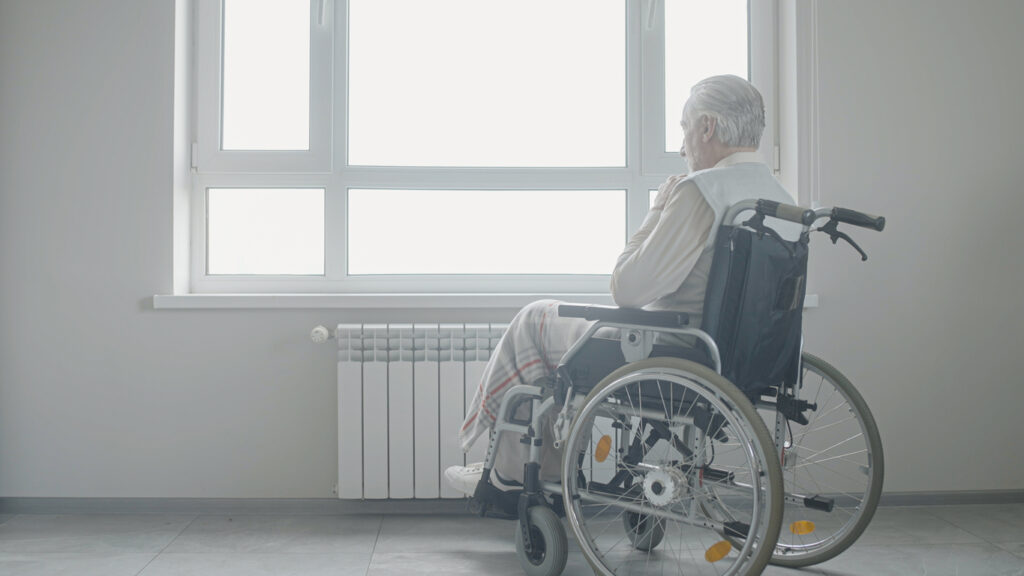Nursing homes are meant to be safe places where our elderly loved ones receive the care and attention they need. Unfortunately, abuse and neglect can happen in these environments. If you suspect mistreatment in a nursing home, it’s important to take action. At Cummings & Lewis, our nursing home neglect lawyers will show you how to report a nursing home anonymously in South Carolina, keeping your identity protected while ensuring the safety of those at risk.
What Are the Signs of Nursing Home Abuse and Neglect?
Nursing home abuse can take many forms, ranging from physical harm to emotional manipulation. Here are the key types of abuse you should be aware of:
- Physical Abuse: Physical abuse involves the intentional use of force that results in bodily harm, pain, or injury to a resident. This can include hitting, slapping, or pushing, for example.
- Emotional Abuse: Emotional or psychological abuse involves actions or words that cause mental anguish, distress, or fear. This type of abuse can be just as damaging as physical abuse and can include verbal threats, and humiliation.
- Sexual Abuse: This refers to any non-consensual sexual contact or activity. It is an especially egregious violation of a resident’s rights.
- Neglect: Neglect occurs when a nursing home fails to provide the necessary care and services that residents need to maintain their health and well-being.
- Financial Exploitation: Stealing money or personal items, or coercing the resident into financial decisions.
Signs of abuse can vary but often include unexplained injuries, sudden changes in behavior, or unusual financial transactions. It’s essential to document any evidence you gather, such as photos, witness statements, and medical records, to support your nursing home neglect report.
How to Anonymously Report Nursing Home Abuse
If you suspect abuse, you have several options to report it in South Carolina anonymously:
1. Contact the South Carolina Department of Health and Environmental Control (DHEC – now SCDHEC)
The South Carolina Department of Health and Environmental Control (DHEC – now SCDHEC) oversees nursing homes in the state. If you suspect abuse, you can file a complaint with DHEC online, by phone, or by mail. They allow you to report anonymously, ensuring your privacy while taking action to protect your loved one.
- File a Complaint Online: You can use the Health Facility and CNA Abuse Complaints forms on the SCDHEC website.
- By Phone: Call DHEC at (803) 545-4370 or toll-free at 1-800-922-6735 to speak directly with someone who can take your report.
2. Call a Nursing Home Abuse Hotline
There are national hotlines dedicated to helping individuals report nursing home abuse. These hotlines connect you with local resources and authorities who can assist further.
- HHA Hotline: Call at 1-800-922-6735. This hotline connects you with local resources to report elder abuse, including nursing home abuse.
- National Center on Elder Abuse (NCEA): Contact them at 1-855-500-3537. The NCEA provides information and resources for reporting elder abuse and can connect you with local authorities.
3. Reach Out to a South Carolina Long-Term Care Ombudsman
An ombudsman is an advocate for residents in long-term care facilities. They work independently to investigate and resolve complaints, and they can help ensure that the abuse or neglect is addressed.
- South Carolina Ombudsman Program: You can contact the South Carolina Long-Term Care Ombudsman at 1-800-868-9095 for assistance.
4. Notify South Carolina Adult Protective Services (APS)
Adult Protective Services (APS) in South Carolina investigates reports of elder abuse, including cases within nursing homes. You can report anonymously, and APS will look into the situation to ensure the resident’s safety.
- Find Your Local APS Office: Visit the National Adult Protective Services Association to find contact information for APS in South Carolina.
5. In Cases of Immediate Danger, Call 911
If you believe your loved one is in immediate danger, do not hesitate to call 911. Emergency services can intervene quickly to protect the individual and provide necessary medical care.
What Happens After You File a Report?
Once you’ve reported the abuse, the agency in charge will begin an investigation. This may include unannounced visits to the facility, interviews with staff and residents, and reviews of medical records. If the investigation confirms abuse or neglect, severe actions will be taken, which could include high fines, staff layoff, or even closure of the facility.
Three Steps to Take After Reporting
Once you have reported suspected nursing home neglect or abuse, your involvement doesn’t end there. Here’s what you should do next:
- Follow-up: Stay in touch with the agency handling your report to monitor the investigation’s progress. Although you reported anonymously, you can still ask for updates.
- Move the Resident: If possible, relocate the resident to another facility where they will be safer.
- Seek Legal Advice: If the abuse continues or the facility does not take appropriate action, you may want to consult with a nursing home abuse attorney. Legal action can ensure that the facility is held accountable and that your loved one receives the care they deserve.
Remember, your proactive actions can make a significant difference in preventing further harm.
Nursing Home Abuse Lawyers in Spartanburg
If you suspect that a loved one has been a victim of abuse or neglect in a nursing home, it’s vital to take immediate action to protect their well-being. At Cummings & Lewis, our experienced nursing home abuse and neglect lawyers in Spartanburg are here to help you every step of the way. We are dedicated to holding those responsible accountable and ensuring that your loved one receives the justice they deserve. Give us a call at (864) 573-9688 and get a free consultation today.
Related Legal Services in Spartanburg, SC
With 50+ years of combined legal experience, the attorneys at Cummings & Lewis, LLC represent people who need legal assistance. Our size, experience, and legal knowledge allow us to represent people who face all sorts of legal concerns in state and federal courts.



